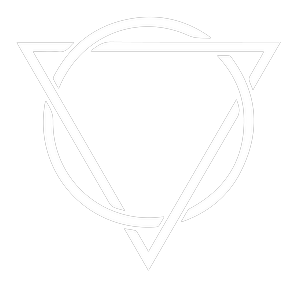“Enshitification” is a crude but incisive term that captures a phenomenon many users of digital platforms feel instinctively but struggle to articulate. It is similar to Sturgeon's Law, which states that 90% of what is made by man in popular culture and content is crap. Coined by writer Cory Doctorow, the term refers to the slow and inevitable decline of once-useful online services into exploitative, frustrating, and joyless systems—designed more to extract value than to provide it. And we would say it can apply to content creators of any sort, very much including artists as well. At its core, enshitification is what happens when platforms abandon listeners, watchers, users, etc in favor of profit, and convenience gives way to manipulation.
The cycle begins innocently enough. A new platform emerges, optimized to attract users by being genuinely helpful, clean, or fun. It encourages growth through free access, openness, and simplicity. But as the user base expands, the platform begins shifting its loyalties - not to the users, but to advertisers, vendors, or shareholders. Gradually, user experience is compromised: search results favor paid placements, algorithms suppress organic reach, privacy is sacrificed for data mining, and once-optional features become paywalled. Eventually, the platform becomes a shell of its former self: bloated with ads, throttled by algorithms, and driven by metrics rather than meaning. So at the early stage - It's focused on value and user experience. Its middle stage - Prioritizes vendors, advertisers, or large users... and its late stage (and does this sound familiar) - Treats both users and sellers as resources to be mined.
This process is not accidental. It is a structural tendency of platforms that prioritize greedy quarterly economic growth (the cancerous kind) and monetization above all else. In this sense, enshitification is not just a technical or aesthetic decline - it is a moral one. The space that once empowered users becomes one that exploits them. So how do we move away from enshitification? First, by reclaiming digital agency. This means resisting passive consumption and questioning default choices. Rather than surrendering to algorithmic feeds, we can seek out tools and communities that operate with transparency and respect. This might involve using open-source platforms, federated services like Mastodon, or tools that respect user privacy and autonomy. Second, we can support ethical alternatives. Even if they lack the polish or scale of mainstream giants. Small platforms, cooperatives, and community-run servers may not offer the frictionless ease of Big Tech, but they often preserve something more precious: integrity. Third, we must change how we measure value. If success is measured only by late stage, post truth, Thatch Reg Rump style profit, platforms will always descend into enshitification. But if we prioritize reliance + sustainability, user well-being, and trust, new models become possible. This may mean paying smaller fees for services that respect us, such as our website nilesheckman.org, shameless plug, or simply engaging more mindfully with the ones we already use. There have been many times we've considered buying a piece of software, which has an unnecessary monthly fee instead of a one time fee, to then ask Reddit for alternatives, and then find a piece of tiny software which does the same thing just as well, but may not look as visually slick, and instead simply has a donation or buy me a coffee page for the author. Fourthly, always remember and act upon - That you are never going to find truly novel, individualized, incredible art or work from a large company. You are going to find it from a small group or individual. For example, Oprah Chopra (Meaning Oprah Winfry and Deepak Chopra, both whom didn't always used to be but have become big money new agey guru figures who have become massive LLC's with huge teams, including marketing teams, behind them) compared to someone like Pierre Grimes who did have a non-profit 501(c)3 called "The Noetic Society", but whose philosophical work, which is superior, and you would never hear about unless someone you respect recommended them your way.
Ultimately, to resist enshitification is to believe that the internet can still be a place of connection, creativity, and shared meaning - not just a marketplace of attention. It requires imagination, patience, and the willingness to choose differently - even if that choice means walking away. Perhaps another reason to give LARGE, software, gig, & media platforms, ecommerce, streaming services, search engines, apps and app stores, online publishing, and corporate journalism less of your time and bias towards their smaller, truer, realer, versions?
